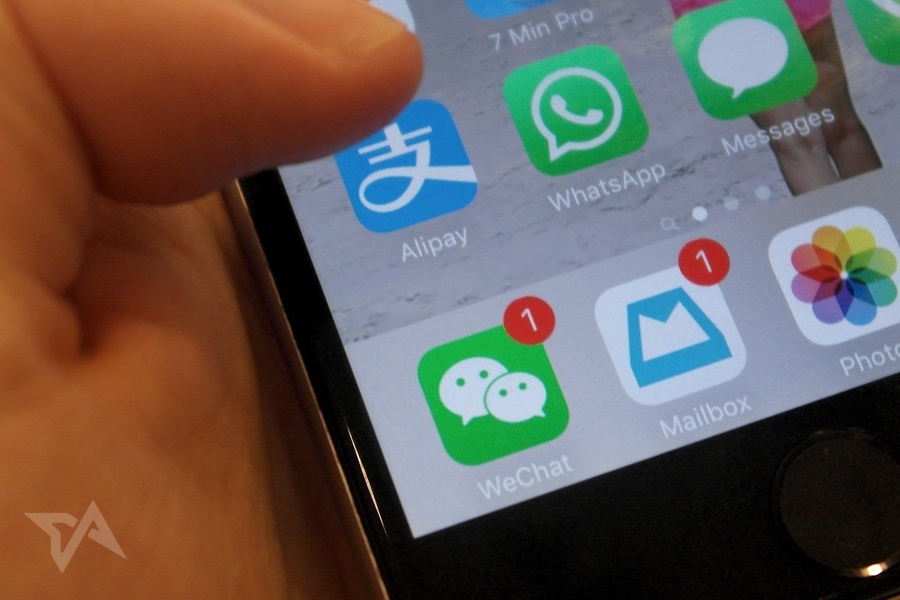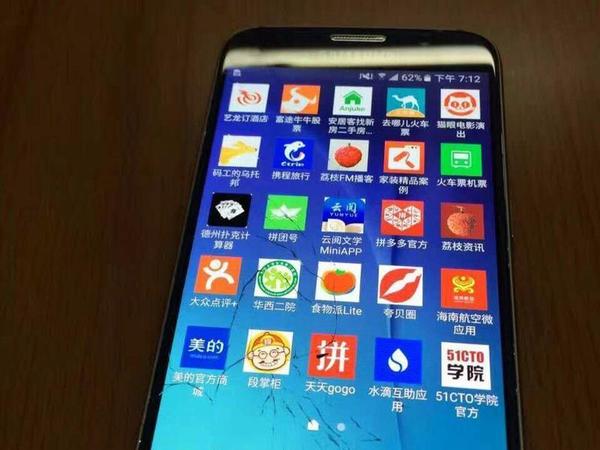
WeChat has 846 million active users at the last count, most of whom are in mainland China.
WeChat is so pervasive and dominant in China that people spend 35 percent of their smartphone time in it. That’s more than any other app by a factor of three.
WeChat is more than China’s leading messaging app and social network. Its huge array of features – online shopping, in-store payments, bill payments, news, and celebrity bloggers, to name but five – make it a universe unto itself for its 846 million active users, most of whom are in mainland China.
But WeChat is not done with its push to dominate China’s internet.
Its next step: destroy the app stores.
WeChat’s newest feature – dubbed “Mini Programs” – allows users to access and utilise an array of apps within the messaging app itself. WeChat parent company Tencent, China’s social media and gaming giant with a valuation of US$239 billion, will be the gatekeeper of these apps. With this move, WeChat will sidestep Apple and the various Android app stores from which Chinese people get their app fix. (Google Play is blocked in China, so it’s not a factor).
See: The amazing ways WeChat is used in China
The Great Wall of WeChat
The giant social network, which first launched in 2011, is now prepping this daring new feature with a select group of beta testers. The details are not yet finalized or fully in the public sphere, but some of the testers have leaked enough information that we now have a rough picture of how it’ll work.
WeChat is saying that other apps are not very relevant.
To get into WeChat’s app store, companies will have to develop apps that are different from their Android and iOS versions. These are “built with a special framework designed by Tencent” and based on JavaScript, say the team at WalkTheChat, a marketing company devoted to WeChat.
On the user side, the apps are accessed from within a new panel inside WeChat, near where hundreds of millions of people regularly go to post photos or links to Moments, which is WeChat’s answer to Facebook’s Wall. On Android phones, the WeChat apps might spawn homescreen icons that look exactly like an app, as shown by Zhang Xiaolong, Tencent senior vice president and “father of WeChat.”

WeChat apps, some bearing names like “mini” and “lite”, have their own homescreen shortcuts in this photo of an Android phone from Tencent exec and WeChat founder “Allen” Zhang Xiaolong. Photo credit: Allen Zhang’s WeChat account; via Technode.
It looks quite a lot like Google’s “app streaming,” unveiled last year, which later morphed into Instant Apps. But Google still hasn’t launched it.
WeChat’s idea, however, seems a bit different to Google’s. The US tech titan wants people – once it’s out in the wild – to download a tiny “instant app” to get a taster of something, or for a service they won’t use often (like a museum guide, or a parking meter app). But it’s not looking to disrupt and totally obsolete its own Play Store, from which it derives a great deal of income by taking a cut of app developers’ revenue. WeChat, with no fortress of its own to protect, sees its mini apps as a chance to build its own walls to keep users forever within its social network.
With WeChat’s tiny apps, the company is saying that other apps are not very relevant, you’re not gonna use them for very long each day – perhaps Uber or Didi for the daily commute; a recipe app for when you’ve run out of dinner ideas – so they might as well be tiny things that don’t hog a bunch of storage on your phone. Most of your time is WeChat time. More and more of your time should be WeChat time. You’re going to spend your life happily within the castle walls of WeChatLand. Don’t resist it… It’s a beautiful thing.
Well, that’s what I imagine Tencent CEO Pony Ma, China’s second richest tech boss, envisages with WeChat’s Mini Apps.
It’s a bold plan. But it’s not entirely unexpected.
More mobile shopping
In some ways, WeChat has already subverted the ubiquity of apps in China. Some startups don’t even make apps for iPhone and Android, instead creating a WeChat brand account that’s accessible solely within the messaging app – like the one that’s basically an Uber for English tutors, and the online butler service. And a number of firms that do have their own apps have also created mobile websites that work within their WeChat brand accounts, allowing you to do a ton of things – like book a cleaner to come over to your apartment, check out the financing options on a brand-new BMW, or see the latest offers from the supermarket you shop at.

WeChat accounts for 35 percent of the time Chinese people spend on their phones, making it far and away the most used app. Photo credit: Pedro Serapio.
WeChat’s upcoming feature is basically an evolution of its multi-faceted brand accounts. With the homescreen links, they’ll be more accessible than ever.
That’s why there won’t be too much resistance from Chinese brands, tech companies, and startups to Tencent’s latest development. From their brand accounts within WeChat, they already see the usefulness of having people access what they offer through WeChat. A number of app developers of all sizes are now testing out their WeChat apps, all the way from one of China’s top music streaming apps down to simple stuff like weather apps.
Until WeChat apps launch to the public, quite a few things still need answers. (Tencent has not yet replied to our queries earlier this week.) Like… the mooted homescreen shortcuts will work fine in the open environment of Android, but it’s not possible on iPhones. Will people get confused between those mini programs and the brand accounts they’re already used to in WeChat? And is Tencent going to take a cut of any in-app purchases that occur within those apps?
Converted from Hong Kong dollars. Rate: US$1 = HK$7.76.
This post In China, WeChat wants to kill app stores appeared first on Tech in Asia.
from Tech in Asia https://www.techinasia.com/wechat-mini-apps-are-coming-to-kill-apps
via IFTTT
No comments:
Post a Comment